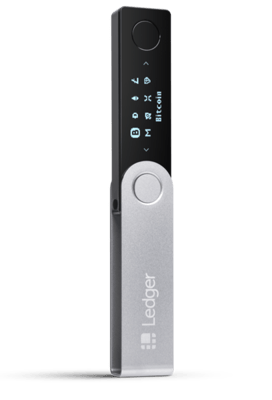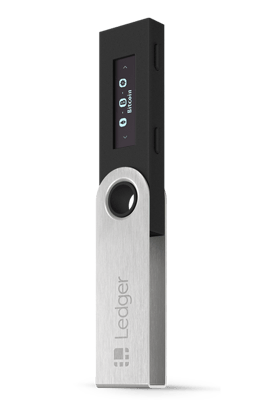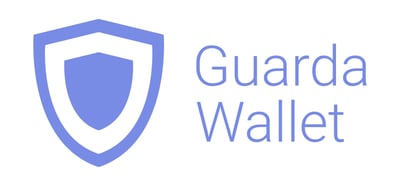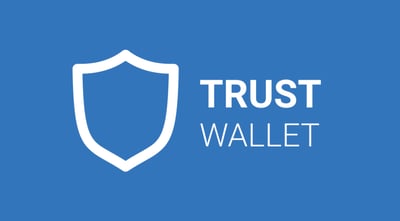How To Store Your Crypto Safely November, 2024
To securely store cryptocurrency, you need to protect your private keys. A cryptocurrency wallet stores and protects these keys, which are strings of characters that give you access to your coins. Private keys unlock coins and let you spend them.
 Written by Nikolas Sargeant
Written by Nikolas Sargeant
| एक्सचेंज फीस | जमा करने के तरीके | |||||||||
|---|---|---|---|---|---|---|---|---|---|---|
| नाम | समर्थित क्रिप्टोकरेंसी | पूर्तिकार (Taker)फीस | प्रारंभकर्ता (Maker)फीस | निकासी फीस | वायर ट्रांसफर | क्रेडिट कार्ड | अमेरिकी निवेशक | स्थापना का वर्ष, | Offer | |

Binance
Centralized Exchanges
|
431 | 0.10% | 0.10% | 0.0002 | 2017 |
$100 तक का वेलकम बोनस प्राप्त करें
|
कंपनी वेबसाइट | |||

KuCoin
Centralized Exchanges
|
638 | 0.10% | 0.10% | 0.0005 | 2017 |
GET UP TO 500 USDT IN SIGN-UP BONUS
|
कंपनी वेबसाइट | |||
| विशेषताएँ | कार्यक्षमता | |||||||||
|---|---|---|---|---|---|---|---|---|---|---|
| नाम | समर्थित क्रिप्टोकरेंसी | सुरक्षा | अनामिता | उपयोग में आसानी | खरीदें और बेचें | गिफ़्ट कार्ड | डेबिट कार्ड | समर्थित प्लेटफ़ॉर्म | प्रयोक्ता श्रेणी | |
| 138 |
|
कंपनी वेबसाइट | ||||||||
| 52 |
EARN 12.3% PER YEAR
|
कंपनी वेबसाइट | ||||||||
| 105 |
GET USD 25 DISCOUNT!
|
कंपनी वेबसाइट | ||||||||
| 352 |
GET USD 25 DISCOUNT!
|
कंपनी वेबसाइट | ||||||||
| 1 |
|
|||||||||
| 52 |
|
|||||||||
| 19 |
|
|||||||||
| 3 |
|
|||||||||
| 2 |
|
|||||||||
To securely store cryptocurrency, you need to protect your private keys. A cryptocurrency wallet stores and protects these keys, which are strings of characters that give you access to your coins. Private keys unlock coins and let you spend them. When you purchase cryptocurrency, you are buying private keys that give you control over that currency. Remember, the cryptocurrency itself always remains on the blockchain.

Specific wallets give users control over their keys, while others like Binance or KuCoin keep keys encrypted and out of reach for users. It's crucial to understand that whoever has the private keys controls the coins. If you opt for a wallet that takes care of your keys, ensure it has an excellent reputation.
Don’t Forget:
-
Keep your computer offline while creating and storing backups to protect your data.
-
Ensure your antivirus software is up-to-date, and use an encrypted browser to add extra security measures.
-
To keep your wallet safe, store multiple copies in various secure locations.
-
Ensure the wallet you use allows you to create a backup.
-
It is important NEVER to share your private keys with anyone. There are various scams online that request your private keys. When you give away your private keys, you cannot retrieve them.
What Are Public and Private Keys?
To understand public and private keys, think of a public mailbox. The mailbox represents the public key. Anyone can put cryptocurrency into the mailbox. However, only the mailman with the key (like your private key) can open the box and retrieve the mail. If someone else has access to your private key, they can steal your cryptocurrency from your mailbox (wallet).

Private keys are crucial to verifying transactions on a blockchain. They act as signatures that authenticate any transaction. When a user initiates a transaction, their private key confirms its validity. A transaction cannot be confirmed or tampered with without the private key after issuance.
Your public keys are safe to share and allow others to send cryptocurrency to you. Share them as much as you want. These keys are created from your coins' private keys, but the encryption is so strong even the most powerful supercomputer would need billions of years to crack the code.
What Is A Crypto Wallet?
You need a cryptocurrency wallet to store, send, and receive digital currencies. The software program manages your public and private keys, monitors your balance, and interacts with blockchains. Having a crypto wallet is essential for managing and securing your cryptocurrency assets.
Cryptocurrency wallets can be categorized into hot and cold wallets. The main difference lies in their usage. There are many of these wallets to choose from.
- Hot Wallet - always connected to the internet. This means it can be accessed anytime. Some of the biggest hot wallets include MetaMask and Exodus.
- Cold Wallet - an offline storage option for your funds. It isn't connected to the internet, making it impossible for anyone to transfer your funds without your permission. Even so, you can still receive funds whenever you want to. Some of the most popular cold wallets include leading manufacturers Trezor and Ledger.

Online cloud wallets, mobile and software wallets, and exchanges are all considered hot wallets.
Cold wallets are a form of hardware or offline storage for cryptocurrencies, including paper wallets, USB drives, and physical items like Bitcoins. Most cryptocurrency holders use both cold and hot wallets for different purposes. Hot wallets are helpful for frequent trading, while cold wallets are better for long-term holding. However, keeping digital assets in exchanges is generally not recommended, and we will explore different wallet options below in this guide.
Types Of Cryptocurrency Wallets
There are five categories of cryptocurrency wallets: hardware, online/software, multi-signature, cloud, and paper. We'll hereinafter go through each one to learn more.
Hardware Wallets
Hardware wallets use an external device like USB to store private keys. They are completely secure and cold. Hardware wallets can also facilitate online payments. Some are compatible with web interfaces and can handle various currencies.
Hardware wallets can be plugged into any online device to make transactions straightforward and convenient. You only need to unlock your wallet, send currency, and confirm the transaction to use them. They are the safest way to store crypto assets but have a price tag. Two popular hardware wallet brands are:
Purchasing a hardware wallet directly from the manufacturer is best to ensure maximum security. Buying from unknown individuals can be risky. It's important to note that even if you do buy from the producer, it's crucial to initialize and reset the device yourself.

When it comes to wallets, the one you choose depends on your portfolio. Serious projects need to have a native wallet listed on their website. However, there are times when a multicurrency wallet may be more convenient.
It's important to note that not all multicurrency wallets can support all coins. Even hardware wallets have a set limit on the coins they support. However, numerous wallets are available for popular cryptocurrencies such as Bitcoin or Ethereum.
Online/Software Wallets
You can download software wallets onto your computer or smartphone to store your cryptocurrency. These wallets are considered hot wallets. Both desktop and mobile versions of these wallets provide a high level of security, but remember that they are not wholly immune to hacks and viruses. It's essential to take precautions and avoid malware to ensure the safety of your cryptocurrency.

Mobile wallets are smaller and simpler than desktop wallets. However, both types can help you manage your funds with ease. Some software wallets even let you access your funds from multiple devices, such as smartphones, laptops, and hardware wallets.
Multisignature Wallets
Multisignature wallets are gaining popularity as advanced security solutions. They distribute private keys among different peers to increase security. It's ideal for businesses, family offices, decentralized organizations, and individuals interested in top-notch security.
Multisignature vaults involve multiple parties. You can create a wallet that requires 2-out-of-3 keys, which can be held by trusted individuals such as friends, family members, or business partners. This ensures your funds remain secure, even if one of the keys is lost or compromised.

Creating a multi-signature setup is an advanced task, but it's becoming more accessible to non-experts with more tools becoming available. If you're interested, check out BTC Sessions' tutorial for guidance.
There are Bitcoin multisig services available to assist with creating a multi-signature scheme. These services aim to alleviate any trouble or pressure involved in the process. If you want professional assistance with creating a multisig scheme, consider checking out these services.
-
Castle
-
Cashmere
-
UniPass
Combining cold storage and multi-signature vaults provides a high level of security for crypto holdings. Both individuals and companies can benefit from this approach. By doing so, you can rest assured that your assets are safe and protected.
Cloud Wallets
Online wallets are considered hot because they allow you to access your funds from any location or device using a cloud wallet. While convenient, they store your private keys online and can be controlled by third parties. This design vulnerability makes them more prone to attacks and theft. Popular cloud wallets include:

Non-custodial online wallets are a safer option compared to cloud wallets. These wallets are accessible through the web or apps, and the service provider cannot access your private keys. Typically, non-custodial wallets are integrated into exchange platforms, which allows for the secure trading of coins. Some examples of non-custodial cloud wallets are wallets provided by:
-
Trezor Model One
-
Crypto.com DeFi Wallet
-
Atomic Wallet
Paper Wallets
Paper wallets are considered cold storage. They're a physical copy or print of your public and private keys. Alternatively, a paper wallet can refer to software that generates a key pair and digital file for printing. You can import the paper wallet into a software client or scan its QR code to access your funds.
Paper wallets are considered old and dangerous technology for storing cryptocurrency. It's recommended to store only a small amount of cryptocurrency on a paper wallet as of 2023. It's just too risky.
How To Avoid Your Crypto Being Hacked
If you've transferred your crypto assets to a private wallet, you've taken a major step toward control. But with this control comes a duty to protect your private keys and remain secure. To achieve this, you can take a few standard security measures.
-
To stay secure, it's essential to activate 2FA. This function should always be enabled to add an extra layer of authentication.
-
It is not advisable to hold cryptocurrency in exchange for a prolonged period. Only keep your cryptocurrency in exchange for as long as necessary.
-
When selecting a hardware wallet, opt for a pin code that is difficult to guess. It is also essential to never upload your 24-word recovery sheet online.

-
It's important always to be aware that your devices can be compromised anytime. To keep your information safe, carefully handle your computer or smartphone screen.
-
To ensure security, rely solely on the information displayed on your hardware wallet screen. Always double-check all details on the device to confirm their accuracy.
-
It’s best not to announce them under your real name or identifiable address publicly. Hackers can access crypto funds even if kept in cold storage.
- When exploring crypto casinos, choose platforms with robust security protocols to minimize the risk of potential breaches or unauthorized access.
Tips And Tricks To Protect Your Crypto
The details mentioned above should be the absolute bare minimum for crypto holders, but here are some tips and tricks you can use proactively to protect your digital assets.
Social engineering
To put it plainly, social engineering involves disclosing personal information that can enable a hacker to steal your identity. Examples include divulging your email address or phone number. The consequences can be severe: a hacker who successfully impersonates you can change your passwords and steal your funds. As such, it’s key that any information that can connect your crypto accounts is hidden and not attached to anything that can be tracked back to you online. Don’t open suspicious emails; avoid it at all costs if something looks suspicious.

Phishing attacks
Hackers often use "phishing attacks" to trick people into entering their passwords or private keys on fake versions of real websites. To avoid becoming a victim, it's important to check the URL and make sure you're on the correct site. Keep your software, especially anything related to cryptocurrencies or hardware wallets, up to date to decrease the chance of hacking. You now know the best way to store your cryptocurrency safely. Be sure to check out the final installment of this series for more information.
Internet Security
Only log in to secure websites with valid HTTPS certificates to ensure safety. Most legitimate sites have one. For additional security, use browser plugins like HTTPS Everywhere. Avoid public WiFi and use a secure connection when using online wallets or exchange accounts. Even in a safe location, ensure your WiFi access point uses strong encryption like the WPA-2 protocol.

Don’t Put Your Eggs In One Basket
To manage your crypto assets properly, it's important to separate your funds. Don't keep all your assets in one place. Instead, use one or more cold storage for long-term holdings and at least one hot wallet for trading and transactions. This method will help you protect your assets and minimize the risk of losing them.
2FA And White Addresses
To make your accounts more secure, always use two-factor authentication. It's best to use software or hardware 2FA options instead of SMS. You can whitelist IP and withdrawal addresses for extra protection. If you have a static IP address, use it. This way, only you can access your accounts and funds.
Closing Thoughts
To keep your cryptocurrency safe, use security measures you can handle. Stay moderate with security and avoid losing access to your accounts, funds, or wallets. Losing crypto is just as common as hacks. Find a balance between complexity and security that works for you. Keeping cryptocurrency safe is an important skill to learn on your journey to becoming your bank. Start learning now to stay ahead of the game.
Author

Nik is a content and public relations specialist with an ever-growing interest in Crypto. He has been published on several leading Crypto and blockchain based news sites. He is currently based in Spain, but hails from the Pacific Northwest in the US.
| एक्सचेंज फीस | जमा करने के तरीके | |||||||||
|---|---|---|---|---|---|---|---|---|---|---|
| नाम | समर्थित क्रिप्टोकरेंसी | पूर्तिकार (Taker)फीस | प्रारंभकर्ता (Maker)फीस | निकासी फीस | वायर ट्रांसफर | क्रेडिट कार्ड | अमेरिकी निवेशक | स्थापना का वर्ष, | Offer | |

Binance
Centralized Exchanges
|
431 | 0.10% | 0.10% | 0.0002 | 2017 |
$100 तक का वेलकम बोनस प्राप्त करें
|
कंपनी वेबसाइट | |||

KuCoin
Centralized Exchanges
|
638 | 0.10% | 0.10% | 0.0005 | 2017 |
GET UP TO 500 USDT IN SIGN-UP BONUS
|
कंपनी वेबसाइट | |||
| विशेषताएँ | कार्यक्षमता | |||||||||
|---|---|---|---|---|---|---|---|---|---|---|
| नाम | समर्थित क्रिप्टोकरेंसी | सुरक्षा | अनामिता | उपयोग में आसानी | खरीदें और बेचें | गिफ़्ट कार्ड | डेबिट कार्ड | समर्थित प्लेटफ़ॉर्म | प्रयोक्ता श्रेणी | |
| 138 |
|
कंपनी वेबसाइट | ||||||||
| 52 |
EARN 12.3% PER YEAR
|
कंपनी वेबसाइट | ||||||||
| 105 |
GET USD 25 DISCOUNT!
|
कंपनी वेबसाइट | ||||||||
| 352 |
GET USD 25 DISCOUNT!
|
कंपनी वेबसाइट | ||||||||
| 1 |
|
|||||||||
| 52 |
|
|||||||||
| 19 |
|
|||||||||
| 3 |
|
|||||||||
| 2 |
|
|||||||||








